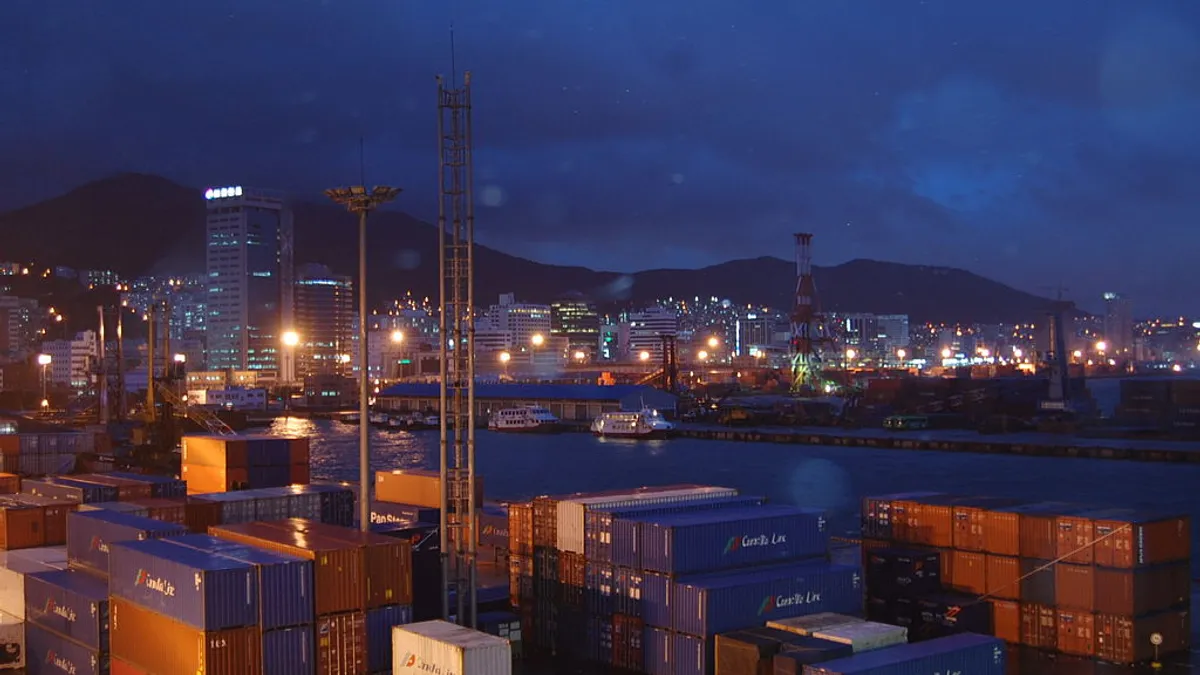Dive Brief:
- Hyundai Merchant Marine (HMM), Heung-A Shipping and Sinokor Merchant Marine signed a Memorandum of Understanding Tuesday to form the HMM + K2 consortium.
- The agreement between the three Korean shipping lines includes vessel sharing, slot exchange and slot purchase clauses, among others, according to the press release.
- The consortium applies to intra-Asia trade lanes, reportedly helping HMM compete against "mega shippers" in the region.
Dive Insight:
HMM is not giving up its ambitions to become a global carrier, but given recent failures to join the 2M alliance or acquire Hanjin assets, the Korean shipping line appears to be shifting gears.
The new consortium instead signals a move to become a greater force within Asian trade lanes. While the consortium will only add 87,639 TEUs in terms of capacity according to Alphaliner records, the agreement would effectively double the fleet size within HMM's network. When average ship size is taken into account, a more clear picture emerges: HMM's 66 ships average just under 7,000 TEUs each, whereas Sinokor's and Heung-A's combined 77 ships average just above 1,100 TEUs per ship.
In other words, the consortium seeks to expand HMM's influence as a dominant regional carrier after the reduced agreement with 2M forced it to shift away from trans-pacific lanes. Whereas in trans-pacific trade larger ships are necessary, the intra-Asian trade lanes include a large number of feeder services to smaller ports where smaller ships can thrive.
The intra-Asia market is equally competitive, though. In just one example, three Japanese lines merged their shipping operations to become the world's sixth largest carrier. The new consortium's ability to jointly invest in port infrastructure will therefore also prove essential to profitable operations.














